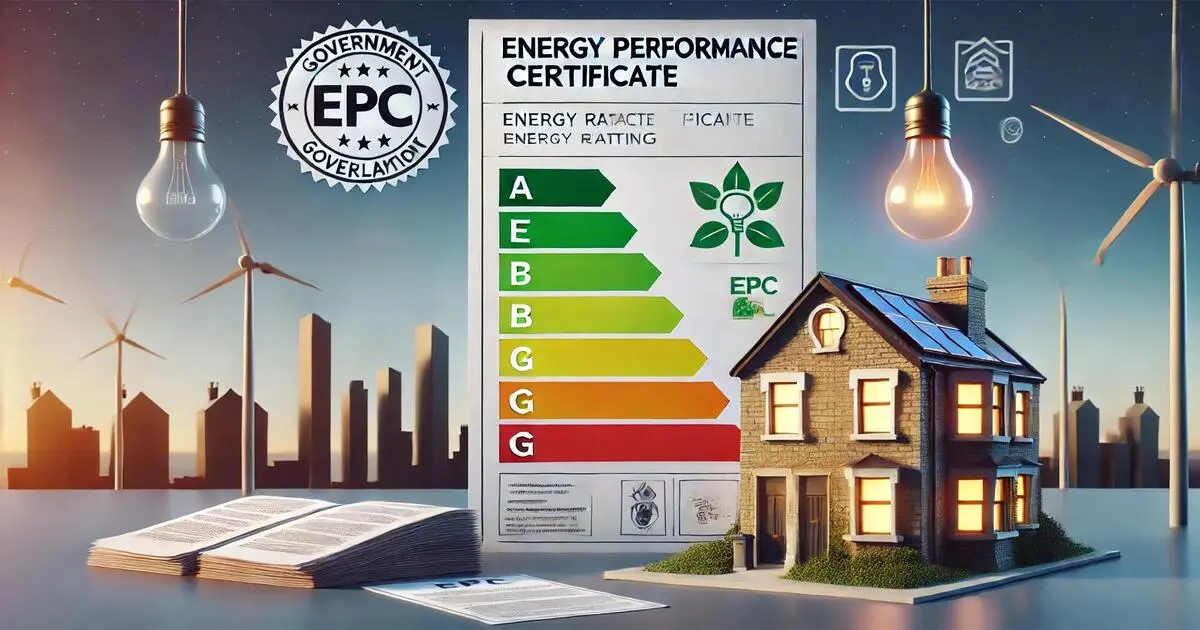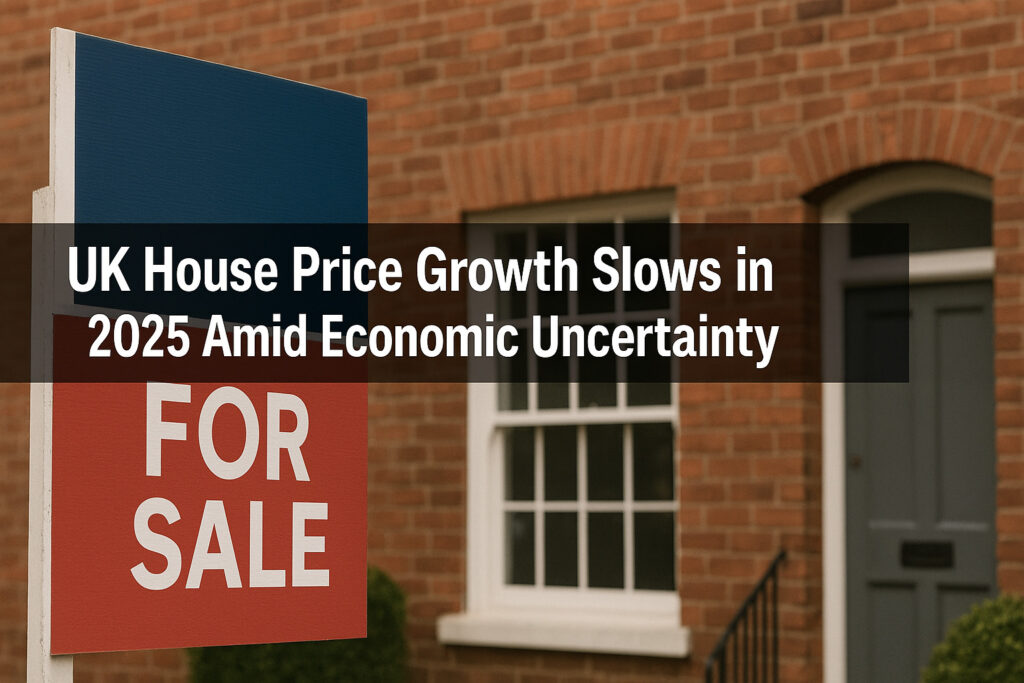Landlords Face Costly EPC Upgrades Amid Tougher UK Energy Efficiency Targets
EPC Compliance Pressure Mounts for UK Landlords
Landlords across England and Wales are bracing for significant financial burdens due to tightening EPC (Energy Performance Certificate) regulations.
Government proposals mandate that all newly rented properties must achieve a minimum EPC rating of C by 2025, with all existing tenancies required to comply by 2028. These measures are part of the broader UK net-zero emissions strategy.
The legislation places the onus on landlords to upgrade energy-inefficient properties, many of which currently hold EPC ratings of D or below. Failure to comply could result in hefty penalties and render properties legally unlettable.
What is the EPC, and Why It Matter for Landlords
An Energy Performance Certificate (EPC) is a legally required assessment that rates a property’s energy efficiency on a scale from A (most efficient) to G (least efficient).
Landlords must ensure their properties meet the minimum energy efficiency standard (MEES) set by the UK government.
Landlords to Spend Thousands to Reach EPC C Rating
Recent surveys suggest over 60% of rental homes in the UK do not currently meet the proposed EPC C standard. Retrofitting costs to bring these properties up to code can vary drastically, often ranging from £7,000 to £15,000 per property depending on age, insulation, heating systems, and glazing.
Key Cost Drivers:
- Insulation Upgrades: Cavity wall, loft, and floor insulation.
- Heating Systems: Replacing old gas boilers with condensing or renewable heat systems.
- Glazing: Upgrading to double or triple-glazed windows.
- Renewables: Installation of solar panels or heat pumps.
Even high-profile politicians have struggled to meet targets. Former Energy Secretary Ed Miliband’s own property reportedly fails to meet the EPC C requirement, highlighting the widespread challenge.
Consequences of Non-Compliance
Landlords who fail to meet EPC C standards may face:
- Civil penalties of up to £30,000.
- Void tenancies due to legal restrictions on letting substandard homes.
- Reduced marketability of their rental portfolio.
- Lower resale value of non-compliant properties.
Mortgage lenders may also begin to restrict financing options for properties below the required standard, creating additional pressure on buy-to-let investors.
Funding and Financial Support Options
While the original Green Homes Grant was scrapped, alternative funding routes are available:
- Local Authority Delivery Scheme (LADS) – for landlords with low-income tenants.
- Home Upgrade Grant – available in some regions for off-gas-grid properties.
- ECO4 Scheme – energy companies offer grants to support energy efficiency upgrades.
Landlords should proactively engage with local councils to explore eligibility and avoid missing funding windows.
Strategic Advice for Landlords Facing EPC Changes
We recommend the following approach:
- Obtain an updated EPC report to identify necessary upgrades.
- Create a phased retrofit plan, spreading costs over time.
- Engage a certified retrofit coordinator to ensure compliance with PAS 2035 standards.
- Prioritise properties with existing void periods for easier renovation access.
- Monitor legislation updates and act before 2025 to avoid last-minute cost surges.
Portfolio Risk Assessment: EPC Ratings Across the UK
A regional breakdown highlights the scale of the challenge:
Region% of Rentals Below EPC C
North West 71%
East Midlands 65%
Greater London 49%
South West 68%
Wales 75%
Yorkshire & Humber 69%
Source: Department for Levelling Up, Housing and Communities (DLUHC), 2024 data
EPC Upgrades: Long-Term Gains Despite Upfront Costs
While the initial capital outlay may seem steep, EPC improvements offer tangible long-term benefits:
- Lower tenant utility bills, reducing arrears risk.
- Higher rental yields due to modernised energy-efficient units.
- Increased property valuation aligned with green market preferences.
- Future-proofed portfolio against rising regulatory standards.
Final Thoughts: Act Early, Avoid Penalties
Landlords who wait risk being caught in a wave of last-minute contractor shortages, inflated costs, and legal liabilities. Proactive planning, cost forecasting, and phased upgrades are essential for compliance and competitiveness in a decarbonising rental market.
FAQ – EPC Regulations for Landlords
What is the minimum EPC rating required for rental properties?
From 2025, all newly rented properties in England and Wales must have an EPC rating of C or higher. From 2028, this requirement will apply to all existing tenancies.
What happens if a landlord fails to meet the EPC C requirement?
Landlords who fail to comply could face civil penalties of up to £30,000, and the property may become legally unlettable until necessary upgrades are completed.
How much will EPC upgrades cost landlords?
On average, landlords can expect to spend between £7,000 and £15,000 per property, depending on the building’s current condition, insulation, heating system, and glazing.
Are there any exemptions available?
Yes. Exemptions may apply if:
- The required upgrades exceed the cost cap (currently proposed at £10,000).
- The property cannot be improved to EPC C for technical or legal reasons.
- A tenant refuses consent for certain improvements.
All exemptions must be registered on the PRS Exemptions Register.
What funding or grants are available to help with EPC improvements?
Landlords may be eligible for:
- ECO4 Scheme (Energy Company Obligation)
- Local Authority Delivery Schemes
- Home Upgrade Grant (in specific regions)
These schemes offer partial or full funding for qualifying energy-efficiency upgrades.
Can I still let a property with an EPC rating of D or E before 2025?
Yes. The current minimum standard is E, so properties with a rating of D or E can still be legally rented until the new rules take effect in 2025.
Will these EPC regulations apply to HMOs (Houses in Multiple Occupation)?
Yes. The EPC regulations apply to all rented properties, including HMOs, flats, bungalows, and houses.
How can I check my property’s EPC rating?
You can check the current EPC rating of your property by visiting the official EPC Register and searching using your postcode or property address.
What improvements are most effective for increasing my EPC rating?
Key upgrades that improve EPC ratings include:
- Loft and cavity wall insulation
- Replacing old boilers with condensing models
- Installing smart heating controls
- Upgrading to double/triple glazing
- Installing solar panels or heat pumps
Should I act now or wait until 2025?
We strongly advise landlords to act now. Demand for contractors and materials is expected to surge closer to the 2025 and 2028 deadlines, leading to increased costs and delays.
If you need help planning your EPC compliance strategy, consider working with an accredited energy assessor or retrofit coordinator to ensure full legal and technical compliance.
Useful Links for Landlords – EPC Regulations and Compliance
Here are essential resources to help landlords navigate EPC upgrade requirements, financial support schemes, and compliance tools:
🔍 Check Your EPC Rating
- Find an Energy Certificate (Official EPC Register – England, Wales & Northern Ireland)
📜 Government Guidance on EPC Requirements
- Minimum Energy Efficiency Standards (MEES) Guidance for Landlords
🧾 Register for an EPC Exemption
- PRS Exemptions Register – Gov.uk
💰 Grants & Funding for Energy Efficiency
- Energy Company Obligation (ECO4) Scheme
- Home Upgrade Grant (HUG)
- Local Authority Delivery Scheme (LADS)
These links provide access to the most current policies, support tools, and compliance resources to ensure landlords stay ahead of EPC regulatory changes.





